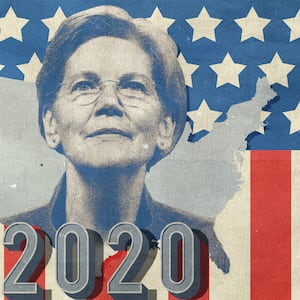It appears increasingly likely that the 2020 Democratic primary field will be the most wide open in recent memory, and perhaps in the history of American politics. As candidates move through the nomination process, there are already arguments being made as to the strengths—and weaknesses—of those who have entered the field and their chances in a general election against President Trump.
Pete Buttigieg
Date launched: April 14, 2019
A month before South Bend Mayor Pete Buttigieg (pronounced “BOOT-edge-edge”) officially announced his presidential campaign, he already was considered a dark horse contender for the Democratic nomination. His strong performance at a CNN town hall in early March turned the heads of Democratic voters and donors alike and helped launch the 37-year-old known as “Mayor Pete” from the obscure edges of early primary to the center of the Democratic field.
In the first 24 hours, Buttigieg’s campaign announced that he brought in $7 million, coming in higher than most candidates without a significant amount of name recognition.

Polling and perceptions: Buttigieg’s early campaign was met with near-universal intrigue by the media and political onlookers who wondered what it would be like to nominate, and possibly elect, the first gay president, a cornerstone of his identity as a millennial candidate. Questions of his electability against President Trump were matched with counterpoints about his ability to win over voters in the midwest—many of whom voted for Vice President Mike Pence for Indiana governor—as he did twice as South Bend’s top executive.
Buttigieg often touts the same talking point about his electability on the trail: that he won re-election with 80 percent of the vote. And while in the early days of his launch, he leaned more on rhetoric about adopting progressive policies with a pragmatic approach than actual rollouts of plans, preliminary polling seems to mirror the mayor’s spin of his ability to win over supporters. In an Emerson poll, conducted between March 21 and March 24, before he formally launched his campaign, Buttigieg came in third place in Iowa behind former Vice President Joe Biden and Sen. Bernie Sanders (I-VT).
While still trailing the top-tier contenders, both of whom enjoy mainstream name recognition, Buttigieg was ahead of other candidates, including Sens. Kamala Harris (D-CA) and Elizabeth Warren (D-MA). He was also higher than former Rep. Beto O'Rourke (D-TX), a rising star from his narrow loss to Sen. Ted Cruz (R-TX) in 2018. Shortly after the first survey came out, Monmouth University conducted a poll from April 4 to April 9 in the same state, where Buttigieg also came in third place. In New Hampshire, the first in the nation primary, Buttigieg also placed third in a St. Anselm College poll taken from April 3 to April 8.
Going into the first Democratic primary debate, Buttigieg’s friction with African Americans both at home and among top African-American leaders in Washington reached a new low. He temporarily stopped campaigning on the trail to address a fatal incident in South Bend this month. The police shooting of a black man sent the city into a grieving process, which Buttigieg witnessed first hand during an impromptu town hall he held in his home city just days before sharing a stage with his rivals in Miami.







